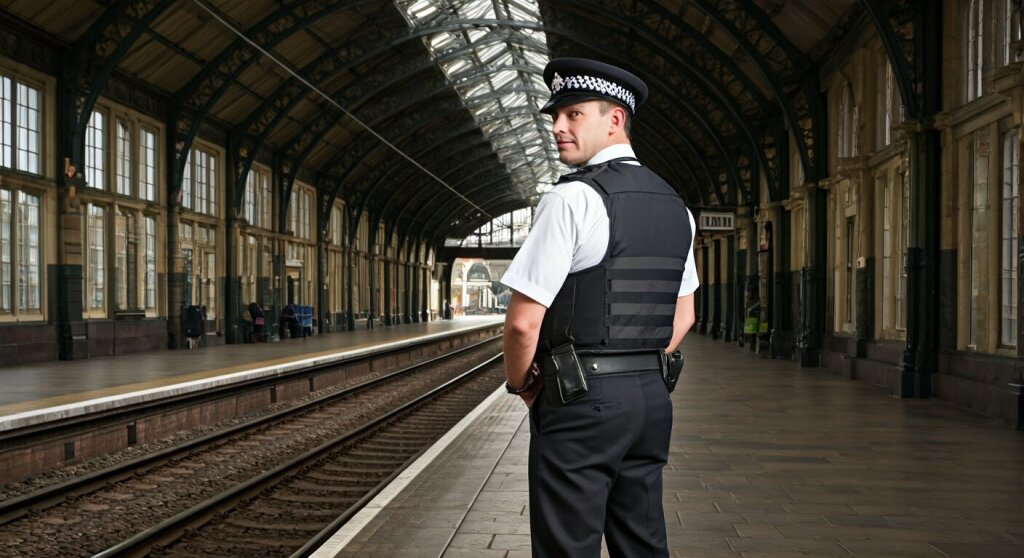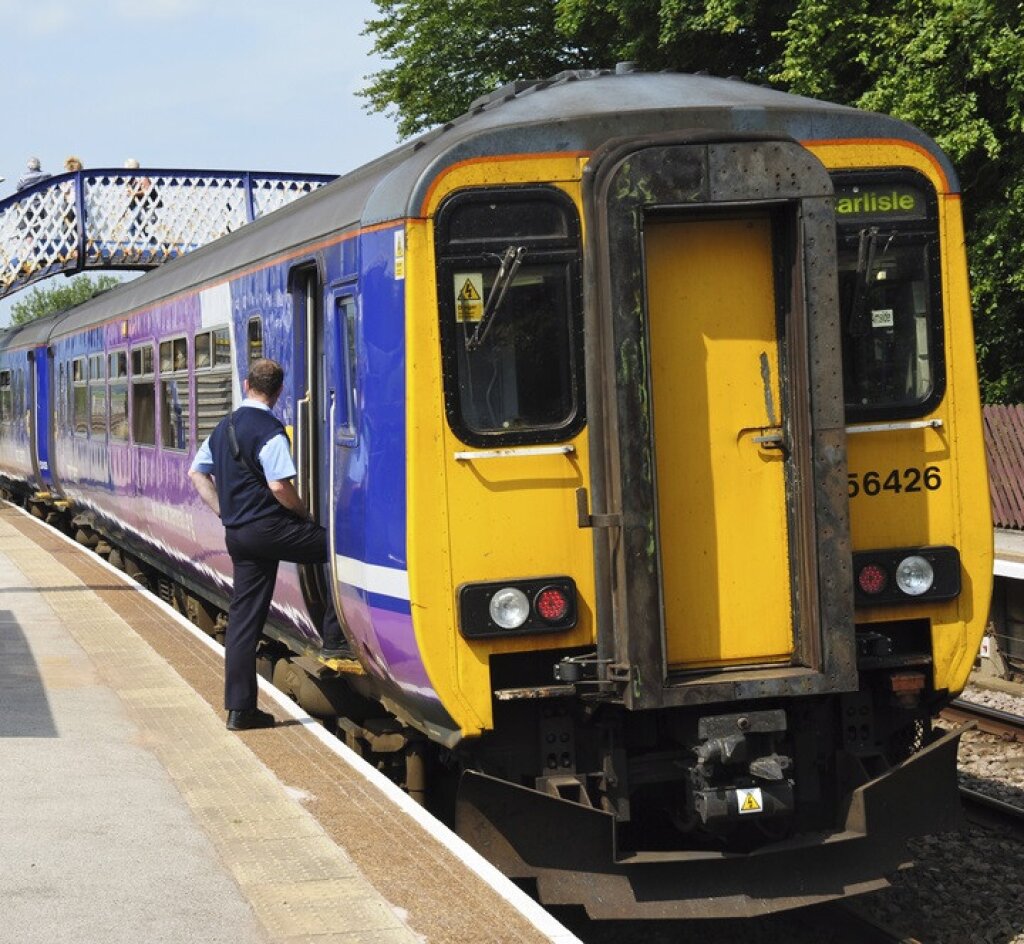A Growing Problem: Fare Evasion and Anti-Social Behaviour on Trains
Fare evasion and crime have become major issues for the UK rail industry, and has hit revenues and investments in infrastructure and service quality. It’s not just about the money; it’s about safety and behaviour too.
In this article, we explore how fare evasion and crime have exploded on UK trains, the measures train operators are implementing to tackle revenue losses, and the technology that is helping establish an effective deterrent that ensures convictions.
Historical Offender Detection Loopholes
High profile fare evasion hotspots like Stratford Station where 62 fare dodgers were caught in 90 minutes show the scale of the problem. Transport for London estimates annual losses of over £130m on its network, while national figures are closer to £240m.
This persistent problem is exacerbated by related anti-social behaviour, vandalism, verbal abuse and fare disputes, making the travelling environment feel unsafe for passengers and staff.
Traditional revenue protection methods are struggling to keep up, so rail operators are looking for more innovative, technology-led solutions.

What is Fare Evasion?
Fare evasion is the act of using public transportation without paying the required fare. Evasion tactics can include sneaking onto trains, using invalid or expired tickets, or avoiding ticket checks. Evasion is considered a form of theft and can result in penalty fares, fines, legal action or fare evasion criminal records. Transit authorities lose significant revenue owing to fare evasion, which has a significant impact on service quality.
The Domino Effect: Financial and Operational Impacts
Fare evasion affects everyone who uses the rail network. With hundreds of millions disappearing each year, train operating companies (TOCs) are under pressure to make up the losses which can lead to:
Delays in service improvements or expansion
Reduced funding for infrastructure maintenance
Higher ticket prices for fare paying passengers
In addition, evaders distort ridership data – that is, carriage occupancy, train route and train timetable data – which results in poor service planning and overcrowding. Public perception also suffers – many passengers expect tough but fair enforcement and get frustrated when fare dodgers seem to get away with it.
Why Fare Evasion Persists
Several factors contribute to the growing fare evasion problem:
Ungated Stations
Many stations are unstaffed, so enforcement is inconsistent.Digital Loopholes
Mobile ticket misuse, short fares and fraudulent refund requests are hard to monitor.Low Risk Perception
Penalty fares are often cheaper than actual tickets and limited enforcement emboldens the evaders – i.e. the risk of fare dodging is seen as worth it.
Some individuals exploit these payment process and payment monitoring gaps, as the perception of the cost and likelihood of being caught are relatively low in relation to the cost of the rail fare.
Chiltern Railways for example recovered more than £1m in lost revenue in 2024 alone, which included multiple cases of tens of thousands of pounds in unpaid fares.
Train operator revenue protection strategies today emphasise that policies must make it clear to potential offenders that they will be pursued and prosecuted, and that the methods for doing so are robust and optimised for maximum court rulings against suspected offenders.
As a current example, GWR’s Revenue Protection and Counter Fraud Strategy 2024 describes the historical backgournd for new detection and proscecution measures as:
The historical piecemeal nature of revenue protection and the disorderly nature of industry data creation and analysis has allowed ticketless travel and journey related fraud to thrive.
The operative phrase in GWR’s re-energised strategy is ‘pursued vigorously’ which, as we cover later, involves enhanced evidence gathering to ensure convictions and deter potential offenders:
[Measures] only work to reduce ticketless travel if pursued vigorously and to a standard that identifies and corrects a proportion of entirely ticketless or improper behaviour.
Revenue Protection Inspectors: On the Front Line
Revenue Protection Inspectors (RPIs) are the face of fare compliance across the UK rail network. Responsible for checking tickets, issuing penalty fares and deterring fare evasion, they are on the front line of revenue protection. But the job is not without its challenges – from confrontations to changing policies and technology, the role of and RPI is a cross between enforcement and customer service.
In recent years the role has become more polarised. Some see RPIs as essential to maintaining fairness for fare paying passengers, others argue the enforcement approach is too harsh, especially when passengers have made genuine mistakes. Plus, with increased aggression and even violence towards RPIs, it is a difficult and at times dangerous job.
RPIs have a wide range of responsibilities including verifying tickets, issuing penalty fares, investigating suspected fare evasion and deterring anti-social behaviour. While primarily focused on enforcement, RPIs also provide assistance to passengers, such as helping with directions, ticketing queries and service information.
The RPIs ability to stay professional under pressure is key to maintaining the balance between effective enforcement and good customer service.
Calls for Clarity at the Point of Purchase
Revenue protection is a major issue for the UK rail industry with significant financial and reputational implications for train operating companies (TOCs).
The recent Transport Focus report on revenue protection priorities to improve the passenger experience highlights the need to simplify ticketing and standardise approaches across the industry.
Simplification at the point of purchase is one of the key takeaways. Complex or unclear ticketing systems can inadvertently lead to fare evasion.
By streamlining ticketing structures and providing more intuitive systems TOCs can reduce accidental non-compliance and free up enforcement resources to focus on deliberate fraud.
The Scale of Prosecution and Revenue Recovery
The scale of revenue loss is massive. Official estimates put annual fare evasion at £240m but experts believe the real figure could be much higher owing to rising digital fraud.
As transactions move online new vulnerabilities emerge – requiring more sophisticated prevention tools.
It’s not just fare evasion. Transport for London (TfL) prosecuted nearly 20,000 individuals for fare dodging in 2023 – a 56% increase from the previous year – showing the growing reliance on legal action to deter offenders. Northern Railway reported a 3% ticketless travel rate between April 2023 and March 2024, its lowest on record, yet still investigated over 57,000 fare evasion reports, issued nearly 42,000 penalty fares and recovered close to £4m.
Operators like c2c saw their penalty fare issuance more than double in 2024, from 3,542 to 8,863 with over £337,000 recovered. One case even involved a £15,000 recovery dating back to a long-term fraud scheme started in 2020.
Standardisation across the network is key to fairness and efficiency. Inconsistent rules and enforcement creates confusion and resentment.
There are many advocates for harmonised approaches, including its successful rollout of initiatives such as the Yellow Card trial, which is an educational warning system - as opposed to prosecution - for first time offenders that promotes fairness without compromising deterrence.
However, more common operator practices involve prosecution, with consequences for the offender that include:
Fare evasion can lead to criminal prosecution, which can carry more serious consequences than a civil penalty.
A criminal conviction can result in a fine of up to £1,000 and could potentially lead to the loss of employment.
Even a genuine mistake or misunderstanding can result in a criminal conviction.
As the industry waits for the May 2025 Transport Focus update TOCs need to get ready to implement these principles at scale.
Bodycams and Surveillance: New Frontlines in Revenue Protection
To respond effectively UK train operators are deploying advanced surveillance tools. Alongside fixed CCTV, body-worn cameras (BWCs) are now standard issue for many staff, especially those in revenue protection, security and customer service roles. These body-worn devices:
Provide clear, contextual footage of interactions
Deter abuse, fare dodging and other infractions such as staff abuse and anti-social behaviour on trains
Enhance evidence gathering for internal reviews and court proceedings
Video footage can absolutely be used as forensic evidence in criminal proceedings. CCTV footage, bodycam footage, and even footage from personal recording devices can be crucial in investigations, and help to identify suspects, reconstruct events and gather other important information.
But these recording benefits come with a critical challenge: handling and redacting footage in compliance with data privacy laws.
Bodycams, Safe Travel and Anti-Social Behaviour
Body cams worn by guards and train operatives are more versatile than static cameras. A guard entering a train carriage wearing a bodycam is more likely to catch a passenger with their feet on seats, which is an offence that carries a fine.
The offending passenger will also know that evidence exists to press charges.
In other instances, passengers may be prevented from boarding a train if they display anti-social behaviour, for example drunkenness.
In such cases, passengers are likely to be interviewed on a railway platform. The fact that legally admissible video evidence is clearly available, and obvious to offenders, reduces staff abuse, subsequent legal arguments and minimises claims for refunds.
Transport for London’s research shows that the risk of assaults on transport colleagues can almost halve when wearing a bodyworn camera, and confirms that footage provides vital evidence to the police in cases of fare evasion or other incidents.
The Necessity for Video Redaction in Transport
Video redaction has become a vital requirement in the transport sector.
It is necessary to obscure identifying features – faces, voices, ID badges – of individuals not involved in incidents while retaining the video footage’s evidential value.
Redaction requires advanced software, legal awareness and precision especially when footage may be used in court or shared under Subject Access Requests (SARs).
Redacted videos must remain:
Legally admissible
In line with GDPR, the Data Protection Act 2018 and evidentiary rulesEthically managed
Protecting bystander privacy while recording misconductTechnically sound
Clear on key actions, timestamps and continuity
Subject Access Requests: The Privacy-Compliance Tightrope
The increase in transport surveillance, especially bodycams, has led to a surge in SARs – legal requests from individuals to access footage of themselves.
SARs must be fulfilled within timeframes, which places extra pressure on transport companies.
Redaction technology is key in processing these requests, to uphold people’s privacy rights without compromising other individuals’ confidentiality.
Having data protection compliant video evidence is essential to TOCs’ efforts to demonstrate that they are determined to crack down on fare dodging and anti-social behaviour.
Redacted Video Evidence as a Deterrent
Compliant, redacted video footage can be a powerful deterrent.
Used in public education campaigns or operator messaging, anonymised video clips show that misconduct is monitored and actionable.
Many train operators have in place Travel Safe policies which are geared to the positive travelling experience of paying passengers as well as to detecting and punishing offenders, be they fare dodgers, individuals who damage trains or who spoil the commute of fellow passengers.
Chiltern Railways’ 2024 “Buy Before You Board” campaign used this educational tactic, alongside floor vinyls and signage, to tell passengers that travelling without a valid ticket is a criminal offence.

The Future: Integration and Innovation
As video surveillance increases and public scrutiny grows, collaboration is key.
Fare evasion solicitors are ever watchful of compliance loopholes. Therefore, legal experts, transport operators and redaction specialists need to work together to ensure footage is managed in a way that is legal, effective and defensible.
Facit’s video redaction solution, Identity Cloak, helps train operators to produce compliant video footage quickly and reliably. Both to ensure the maximum prosecution rates for fare dodging and other crimes, and to help operators to fulfil SARs within ICO deadlines cost-effectively.
Conclusion
The rise in fare evasion, anti-social behaviour and privacy concerns demands a smarter, more ethical approach to enforcement.
Redacted video evidence is now at the heart of safe travel, fair prosecution and public trust in the UK’s rail network.
As video and compliance technologies evolve so must the policies and professionals who manage them – blending precision, privacy and accountability to keep our railways safe and fair.
Facit’s video redaction solutions are helping train operators to reduce the cost of compliance, improve revenue protection, establish viable offender deterrents and maximise prosecution results. Make an enquiry below if you have any questions.



